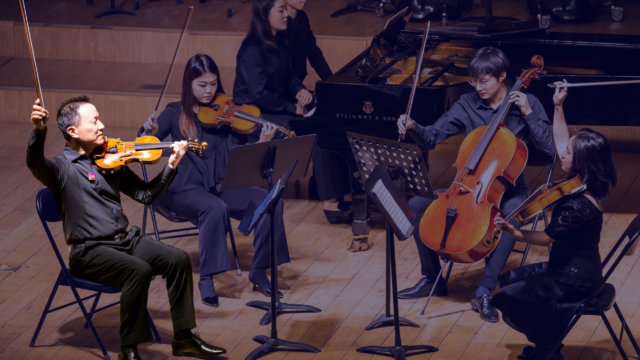Prelude and Table of Contents: Summer 2022

From the Editor
When Russia invaded Ukraine, orchestras everywhere played Ukraine’s national anthem and works by Ukrainian composers to demonstrate solidary with the war-torn country. Swift responses to heartbreaking situations are turning up at more and more at orchestras, in ways that go beyond holding fundraisers and playing evocative scores in a show of support. U.S. orchestras are commissioning works that confront tragic events and social injustice in the here and now, from a far more diverse range of composers than before. The scores embrace mourning, protest, lamentation, and rage, and function as rallying cries and as tearful cris de coeur.
Music can speak truth to power—but it can also speak for the powerful. All those military marches, battle hymns vowing to crush the opposition, jingoistic fanfares—not to mention the heavy ironies of composers like Wagner, whose music aspires to the divine but whose real-life racist and anti-Semitic views were repugnant. Recently, Tchaikovsky’s 1812 Overture, written to celebrate Russia’s victory over Napoleon, was removed from multiple concert programs because its bombastic cannon fire was deemed inappropriate given the current situation in Ukraine. Yet 1812 is a favorite at America’s July 4 orchestra concerts, which celebrate this country’s Independence Day. Context is everything.
In this issue, we report on how orchestras are taking action to help refugee musicians who were forced to flee their homelands, the myriad ways that composers are grappling with the environmental crisis, the increasing presence of Black conductors on orchestra podiums, and much more. Some might ask why orchestras—which exist to play music—would venture into the fierce urgencies of now. But orchestras always have. Just ask Tchaikovsky.
Robert Sandla
Table of Contents
Related
Become a member
Thank you for your interest in the League of American Orchestras! We are dedicated to advancing the orchestral experience for all.
Join Now